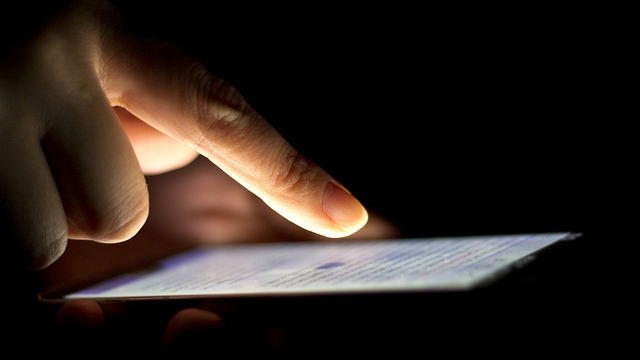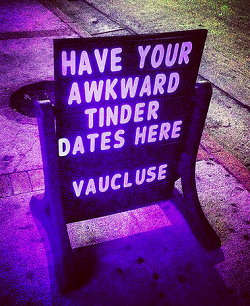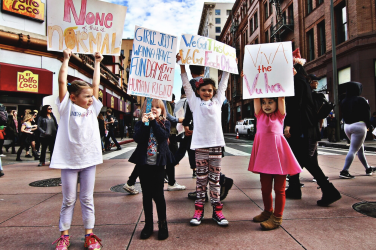In the midst of this technological revolution we have swiftly moved into the smartphone era – where all our laziest desires can be fulfilled at a mere swipe of our touchscreens. Therefore, it seems only natural that the way we form human relationships is entering the technological world too. How have dating apps such as Tinder, Lovoo and gay-friendly forerunner Grindr become so wildly popular and how are they moulding the way we meet friends and potential lovers in the 21st century?
Sean Rad, chief executive officer, and Justin Mateen, chief marketing officer, launched location-based dating app Tinder in 2012 in the US under the umbrella of leading media company IAC/InterActiveCorp. Unlike Match.com, also owned by IAC, and other such online dating websites, Tinder doesn’t bother with any algorithms. In doing so, it eliminates the time-consuming processes of having to read people’s biographies and searching for compatible profiles. Tinder matches, on the other hand, rely heavily on appearances through carefully selected profile photos and punchy mini biographies. For our increasingly impatient generation, where anything we may need or want can be accessed through the Internet within seconds, it seems logical that our methods of dating should be sped up too. Essentially, Tinder feels a bit like playing a game, whereby when you have a match, you are even asked if you want to “chat” or “keep playing”. You are bombarded with photos of eligible bachelors and bachelorettes and swipe right if you want to make a match, or swipe left otherwise. Whilst online dating used to be relatively stigmatised and something of a taboo subject, the explosion of popularity of dating apps have entirely normalised this process, making the nerve-wracking process of meeting someone and asking them out in the flesh almost a rarity.

How is Tinder becoming ever more popular? Co-founder Whitney Wolfe’s marketing strategy of introducing the app into fraternities and sororities allowed it to become popular in the US, eventually reaching us all the way in Europe. Even though in countries such as Italy, Spain and Poland it still has a lot of work to do, Tinder has successfully conquered Germany, the UK, Norway and France. The addictive app is available almost worldwide, with 6 million matches a day and 600 million profile reads a day, says Mateen, maintaining that Tinder is not just a dating app, but also a social networking space to build platonic friendships and find companions during your travels abroad. Where you would never consider meeting the potential love of your life or sexual partner on the “others” inbox section of Facebook, Tinder has fully normalised the experience of chatting online to strangers. It simulates the experience of being in a bar and approaching someone you find attractive, with the added bonus of the confidence that they too have “swiped right” for you. By effectively eliminating the embarrassment of rejection involved in the brave act of propositioning oneself to someone, this is what is known as the “double opt-in” in the world of Tinder. Having recently introduced its premium option “Tinder Plus” for £3.99 a month, Tinder isn’t going anywhere.
Where you would never consider meeting the potential love of your life on the “others” inbox section of Facebook, Tinder has fully normalised the experience of chatting online to strangers.
Tinder appears to be male dominated with 62% of its users being male, despite theories that the reason for Tinder’s enormous success is its appeal to women. Men were also found to swipe right 46% of the time whilst women swipe right a mere 14%. Game theory suggests that the “swipe right” instinct is predominant in men due to them being more prone to risk-taking in other situations such as gambling. However, through these statistics you can begin to get a taste of Tinder’s reliance upon a heteronormative, gender-binary world. When you create a Tinder account you are asked your gender, only offering a male and female option, and whether you are interested in males or females. This black-and-white approach to sexuality and gender already excludes plenty of people from the Tinder trend, such as the transgender and intersexual community. Whilst proving to be relatively popular with its lesbian community, Tinder appears to be far less successful with gay men. It appears that Grindr – a similar, location-based dating app exclusively for gay men – is predominantly used, but is associated with being far more promiscuous. Tinder, on the other hand, appears to be more associated with heterosexual modes of sexual behaviour and monogamy.

Having said this, Tinder boasts having created plenty of marriages, engagements and successful relationships – both heterosexual and homosexual – despite its previous reputation of being an app for one-night stands only. In my limited experience of the app, I definitely feel that people can be outrageous as they want in their chat-up lines and requests behind the shield of their smartphones. Tinder has certainly changed how we approach each other, not only by bringing it to our smartphones but also by pushing flirting to its most provocative nature. Having received messages propositioning sex in obscure places and manners before even pretending to be interested in having a conversation to get to know one another, to someone telling me they wanted to meet me because they just want to talk about their crippling insecurities with a stranger over some pancakes. With more and more Tinder couples flourishing and successful Tinder dates everywhere I go, Tinder and other dating apps seem to have given 21st century dating a complete upheaval.
Cover Photo: Thomas8047 Credit: CC BY 2.0










